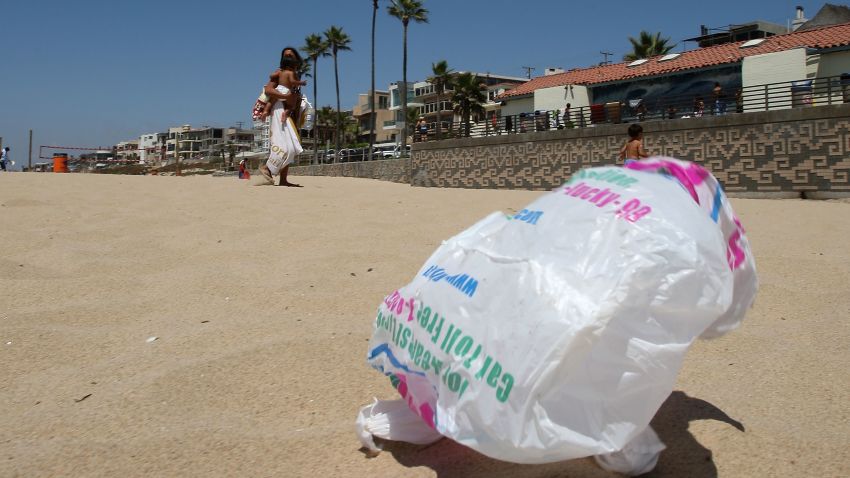Sharing water bottles and utilizing refillable shampoo pouches are novel ideas aimed at reducing plastic pollution

Plastic is ubiquitous in our daily lives, from gym clothes to water and shampoo bottles, facial scrubs, car interiors, and to-go boxes. Unfortunately, it also inevitably finds its way into the ocean, contributing to the formation of several massive garbage patches in various oceans worldwide.
Moreover, plastic is now making its way into our bodies. Recent studies have found nanoplastics in bottled water, the food chain, and prepared food served in plastic containers. The health risks posed by these particles are not yet fully understood.
At the Aspen Ideas: Climate summit in Miami Beach, a panel discussed solutions to plastic pollution, highlighting innovative approaches to tackling the issue. One such solution involves the introduction of stainless-steel shareable water bottles, aiming to eliminate single-use plastic bottles. Another initiative focuses on the beauty industry’s efforts to reduce plastic packaging by promoting refillable formats in the form of pouches.
Kadeya, a Chicago-based startup, has developed a system that provides users with a stainless-steel water bottle, which can be refilled with tap water at vending machines strategically placed in various locations. This system not only eliminates the need for plastic water bottles but also reduces the carbon footprint associated with transporting heavy bottled water.
Marissa Pagnani McGowan, Chief Sustainability Officer for L’Oréal’s North America division, discussed the beauty company’s push for better packaging solutions, such as refillable pouches for products like shampoo. These pouches use less plastic than traditional bottles and are easier to ship. L’Oréal is also working on making plastic packaging more circular by improving its recyclability and durability.
In the apparel industry, fabrics containing plastic, such as fleece, spandex, nylon, and polyester, have revolutionized clothing. However, these fabrics can shed micro and nanoplastics into the environment. McGowan emphasized the need for a more circular approach to fashion, where materials last longer and can be easily reused or recycled.
Overall, there is a growing recognition of the need to address plastic pollution through innovative solutions that reduce plastic use, improve recyclability, and promote sustainable practices across industries.

